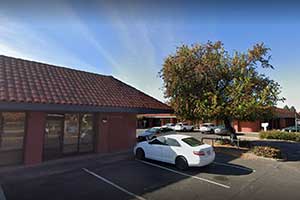Skip To Rehab Listing
Even so, for individuals struggling with drug and alcohol addiction problems, Fremont can also offer solutions in the form of 27 alcohol and drug rehabs intended to support patients in their recoveries.
Drug and Alcohol Rehab Approaches and Settings
Fremont area residents who have a problem with addiction have multiple rehab settings available to them, including the following: inpatient drug treatment, long term drug and alcohol rehab programs, outpatient hospital programs, short term rehab programs, inpatient detoxification centers.
These treatment centers make alcohol and drug rehab easy to obtain, with convenient locations and numerous different treatment modalities from which to choose, such as those listed here: group therapy, contingency management/motivational incentive, couple/family therapy, substance abuse counseling approach, relapse prevention, anger management.
Special Programs for Alcohol and Drug Recovery
Alcohol and drug abuse affects every individual differently. In order to address these differences and offer more tailored treatment, addiction treatment centers in Fremont offer a number of special programs for clients such as: transgender or (LGBT) clients, legal advocacy, co-occurring mental and substance abuse disorders, persons who have experienced sexual abuse, treatment for spanish-speaking clients, residential beds for client's children.
Clients who feel they may benefit from these special programs can discuss them with the treatment facility to get help that is designed to maximize the likelihood of lasting recovery.
Rehab Payment Options
Residents of Fremont come from diverse economic circumstances, making it vital for rehabs to offer many payment alternatives that put treatment within financial reach. Clients can expect to find financing alternatives at close by drug and alcohol rehab centers such as the following: private pay, private insurance, sliding fee scale, military insurance, access to recovery (atr) voucher, other state funds.
Despite a patient's financial situation, payment should not be an obstacle to recovery. Alcohol and drug rehab centers guide individuals through their financing options and help them pinpoint a way to pay for their treatment.
The goal of multiple rehabilitation programs, methods, programs, and financing alternatives is that treatment for alcohol and drug abuse is possible for as many individuals who need it.
Commonly Asked Questions about Addiction and Treatment
What are things I should look for when choosing a rehab?
When choosing a rehab facility for yourself or a loved one, it's important to consider several factors to ensure the best fit and the highest likelihood of a successful recovery. Here are some key aspects to look for when evaluating potential rehab centers:
- Accreditation and Licensing: Ensure the facility is accredited by a reputable organization and licensed by the appropriate state or national authorities. This helps guarantee that the center meets established standards for quality care and safety.
- Treatment Approaches: Evaluate the treatment methods and therapies offered by the rehab center. Look for evidence-based approaches, such as cognitive-behavioral therapy, motivational interviewing, and medication-assisted treatment, which have been proven effective for treating addiction.
- Specialized Programs: Depending on your needs or the needs of your loved one, you may want to choose a rehab facility that offers specialized programs, such as those tailored for specific substances, co-occurring mental health disorders, or unique populations (e.g., veterans, LGBTQ+ individuals, or adolescents).
- Customized Treatment Plans: A high-quality rehab facility should develop an individualized treatment plan for each client, taking into account their unique needs, goals, and circumstances. This ensures that the treatment approach is tailored to provide the best possible support for lasting recovery.
- Duration of Treatment: Consider the length of treatment options offered by the facility. While shorter programs (e.g., 28-30 days) may be sufficient for some, others may benefit from longer stays (e.g., 60-90 days or more) to fully address their addiction and underlying issues.
- Aftercare and Continuing Support: Look for a rehab facility that offers aftercare services, such as ongoing counseling, support groups, or transitional living arrangements. These services can provide essential support during the transition back to everyday life and help maintain long-term recovery.
- Qualified Staff: Ensure the rehab center employs experienced, licensed, and compassionate professionals, such as therapists, counselors, doctors, and nurses, who are trained in addiction treatment and recovery.
- Family Involvement: Some rehab centers offer family programs or therapy sessions to involve family members in the recovery process. This can provide valuable support and help address any family dynamics that may contribute to addiction.
- Cost and Insurance: Consider the cost of treatment and whether the rehab center accepts your insurance plan or offers payment assistance options, such as sliding-scale fees or financing.
- Facility Amenities and Environment: Take into account the physical environment and amenities of the rehab center. A comfortable, clean, and safe environment can contribute to a more positive and focused recovery experience.
Are some individuals genetically predisposed to drug and alcohol addiction?
Yes, research indicates that genetic factors can play a significant role in an individual's susceptibility to drug and alcohol addiction, although they are only part of the picture. It's estimated that genetics account for approximately 40-60% of a person's vulnerability to addiction, with the remaining risk coming from environmental and psychological factors.
Here's a closer look at the role of genetics in substance use disorders:
Genetic Predisposition: Certain genetic variations can influence how an individual reacts to drugs or alcohol. For example, some people might experience a more intense "high," or they might not get unpleasant side effects that deter others from continued use. These genetic differences can increase the likelihood of repeated use and, ultimately, addiction.
Co-occurring Disorders: Genetic factors can also contribute to mental health disorders such as depression, anxiety, or bipolar disorder. Individuals with these conditions are often at a higher risk for substance abuse and addiction, creating a potential link between genetic predisposition to these mental health conditions and increased risk for addiction.
Family History: A family history of addiction can indicate a possible genetic predisposition. If close relatives, such as parents or siblings, have struggled with addiction, an individual may be more likely to develop a substance use disorder. However, a family history of addiction also often comes with certain environmental factors that can increase risk, such as exposure to substance use at a young age or a lack of stable, supportive family structures.
Epigenetics: Epigenetics, or changes in gene expression due to experiences and environment, can also play a role in addiction. For instance, exposure to high levels of stress or trauma can cause changes in the way genes function, potentially increasing susceptibility to addiction.
However, it's essential to understand that while genetics can increase the risk for addiction, they do not determine destiny. Environmental factors such as exposure to drugs, family environment, peer influences, and individual resilience can heavily influence whether a person with a genetic predisposition will develop a substance use disorder. Furthermore, effective prevention and treatment strategies can help individuals at risk for or struggling with addiction to lead healthy, fulfilling lives.
What does drug withdrawal feel like?
Drug withdrawal is a complex process that can feel different for everyone, depending largely on the type of substance involved, the duration and intensity of use, and individual factors like overall health and genetic predisposition. However, some general experiences and symptoms are often associated with the withdrawal process:
Physical Symptoms: Many people experience physical discomfort or illness during withdrawal. Depending on the substance, this can range from flu-like symptoms (such as fever, chills, sweating, muscle aches, and fatigue) to more severe symptoms like seizures or hallucinations. Opioid withdrawal, for example, is often compared to a severe flu, while alcohol withdrawal can be life-threatening in severe cases.
Psychological Symptoms: Withdrawal can also involve psychological symptoms like anxiety, depression, mood swings, irritability, difficulty concentrating, and cravings for the substance. These can be just as challenging, if not more so, than the physical symptoms.
Sleep Disturbances: Insomnia is a common symptom of withdrawal from many substances, while vivid or disturbing dreams may occur when withdrawing from others.
Discomfort and Distress: Generally, withdrawal can be a very uncomfortable and distressing process. The body has become used to the presence of the substance, and it can react strongly when the substance is no longer available.
Cravings: One of the most challenging aspects of withdrawal for many people is the intense cravings for the substance. These cravings can be both physical and psychological, and they can be triggered by various factors, including stress, people, places, or things associated with substance use.












